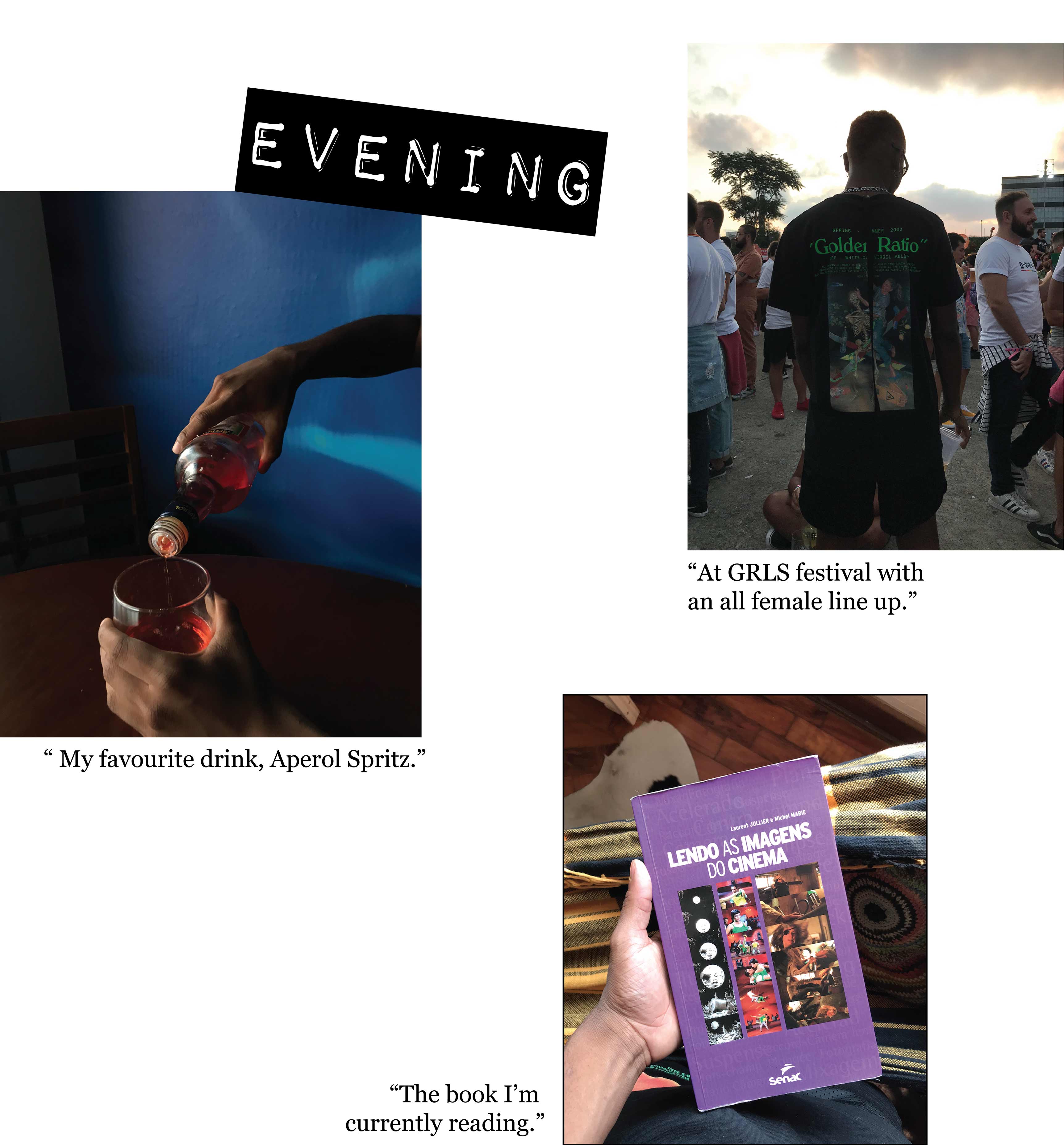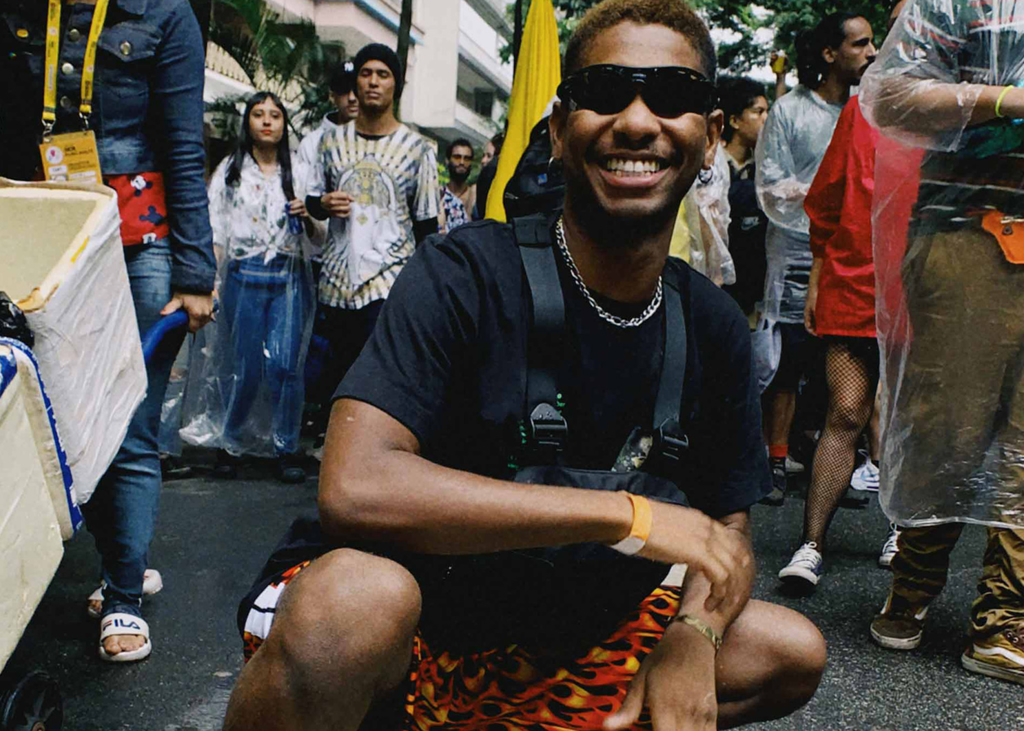
24 Hours With… Mauricio Sacramento
If you’re looking to party in Brazil, then Mauricio Sacramento is the person to call. The Salvador-born, São Paulo-based creative is the brains behind BATEKOO, a collective who champion the rights of marginalised bodies via their music projects, parties and record label. Created as a way to support black and LGBTQ+ communities in Brazil, Mauricio takes us through a day in the life of running the collective, and tells us all about the recent Carnival season.
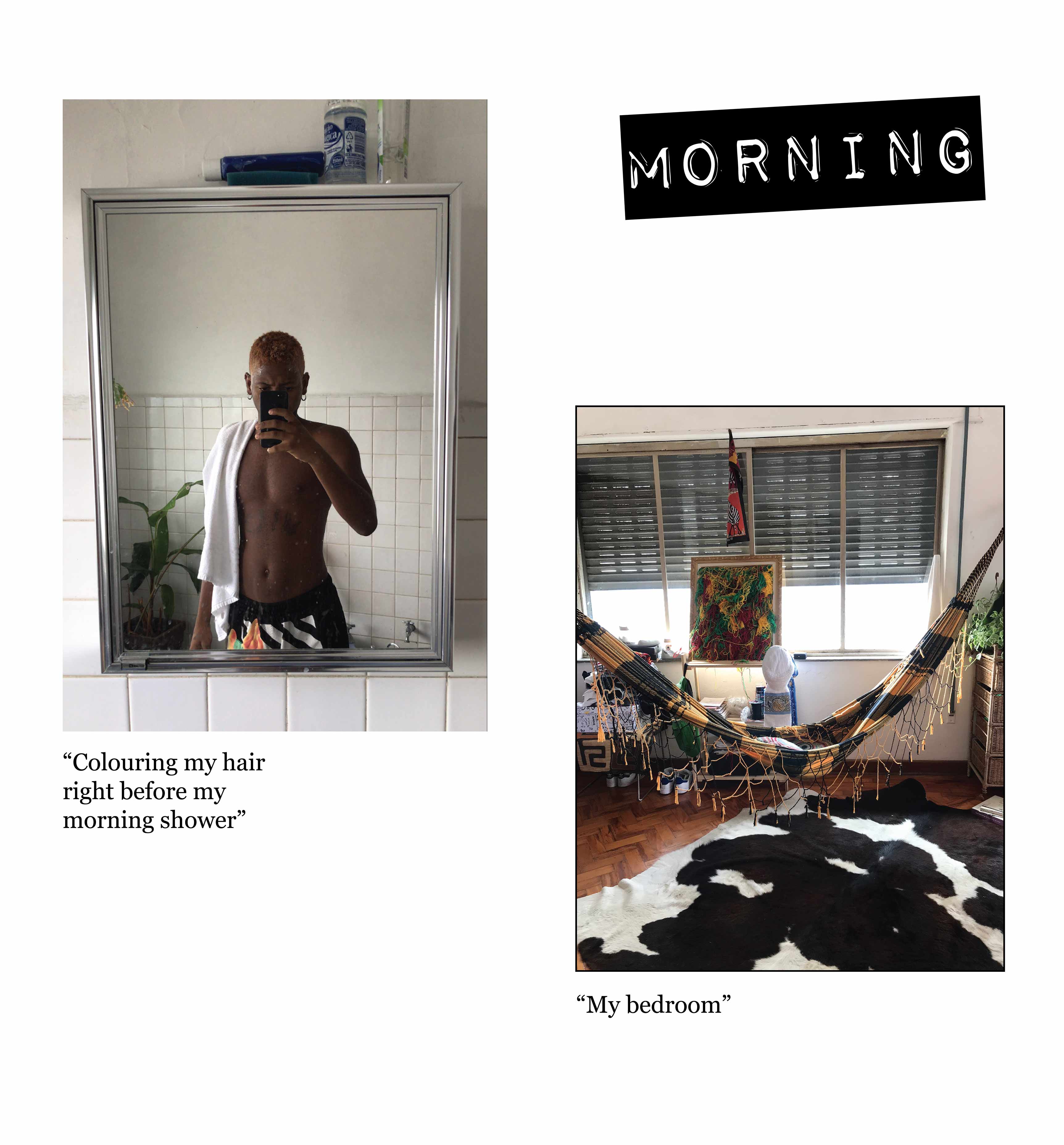
What time do you wake up and where?
I usually wake up at home at 9 am. I start work at 10 am, but I work long hours and go to sleep late, so that’s pretty much my loop.
What’s the first thing you do in the morning?
I wake up and stay in bed for a while thinking about life and the day. Then I stretch, tidy my room and sit at my computer to organize my day.
Can you describe your home?
My house is very large. It has three bedrooms and is in downtown São Paulo. A 1950s building with hardwood floors and thick walls. It’s beautiful and well-lit. I consider living here a big achievement, as I grew up in a very small and humble space, though I am not ashamed of that.
Do you share it with anyone?
I live with two friends. Arthur, a carioca (person born in Rio de Janeiro). He’s a 30-year-old make-up artist and is the most mature person in the house. The other is Kevin, 26, a content creator and creative director. Crazy, crazy friend. We always go out together and have fun. Arthur usually comes along too!
Do you have any rituals?
I do this sort of fake yoga that I invented to empty my mind when I wake up, I also like to stretch and align my breath to try to deal positively with my heavy workload.
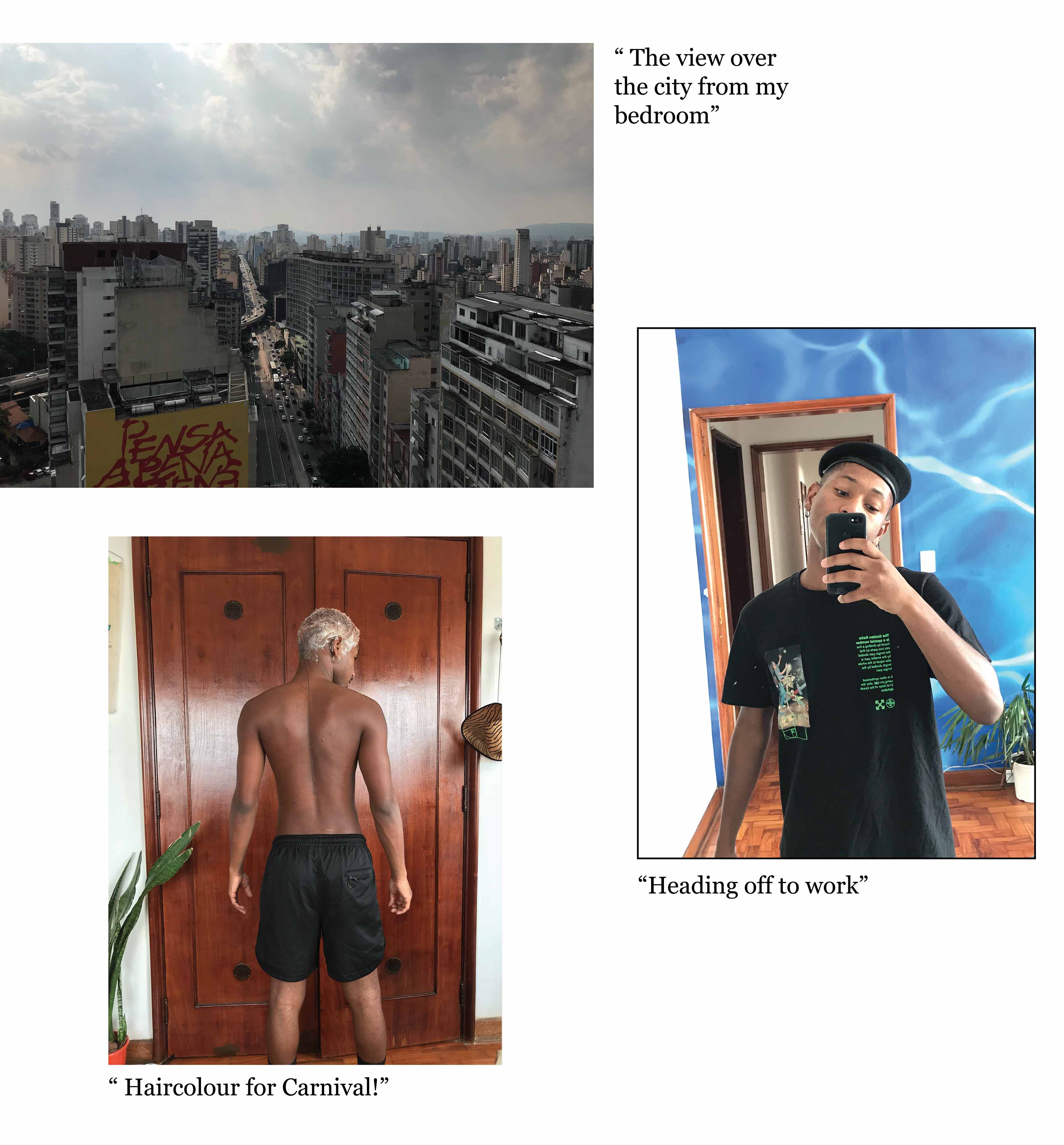
How would you describe what you do?
I think, create, develop strategies for and manage a national brand - BATEKOO. I’m also a DJ. In my work I’m always thinking about inclusion, innovation and culture. Everything I do is motivated by thinking about how to have a more diverse and inclusive impact, primarily in the cultural space.
How has your background influenced who you are today?
I don't have traditional academic training, but my mother educated me in moral and ethical values, which was very important. This is reflected in all of my work, my core values and is deeply rooted within me.
Can you tell us a bit about BATEKOO and how you got started?
BATEKOO was born in 2014 from the idea to create a space aimed at black people, LGBTQ+ people, and inhabitants of society’s peripheries, in that order. A space that would give back to these communities what has always been taken from them, and one that revolves around respect for others and their differences. Today we operate in seven states in Brazil, hosting monthly events based around the network we have created, focusing on celebrating the communities we set out to support. We’ve created a music label called BATEKOO Records, which is a label aimed at black music, LGBTQ+ artists, urban centers and artists in the early stages of their career. We also have an education project and we are in the process of designing a digital content platform.
What are the most important factors in your work?
Positively impacting life and the way black people, LGBTQ+ people, fat people and other diverse minorities see and connect. Encouraging young people with new possibilities to build their futures and embrace who they are.
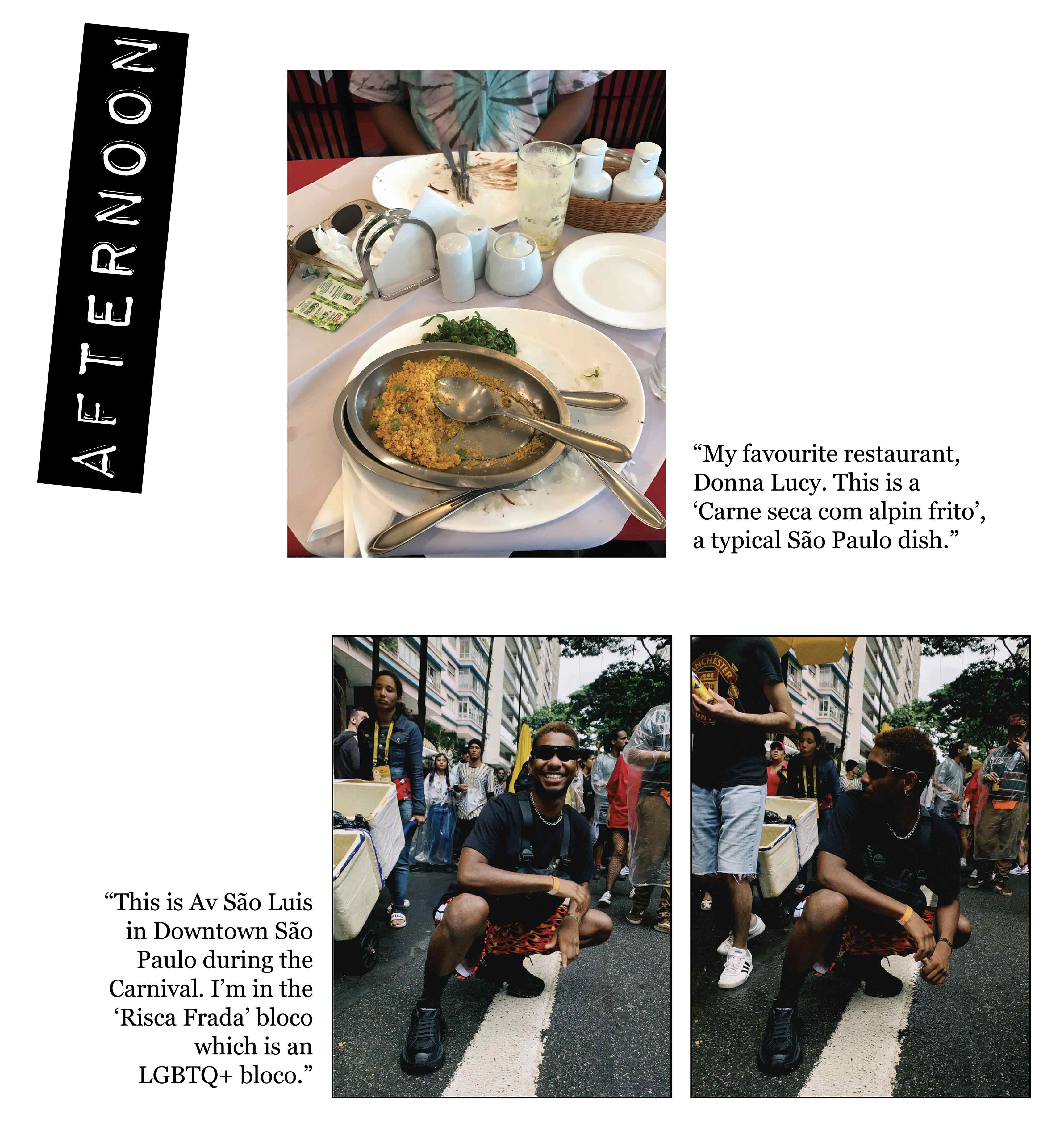
What are the projects you’re working on at the moment?
With BATEKOO we are always pushing the Brazilian cultural scene forward with our monthly events. In parallel to that we put on shows and music productions for artists from BATEKOO Records. We also create projects in partnership with brands. Outside my work with BATEKOO, I’m always playing events, alongside curating and consulting for brands and companies. I sometimes do some image-related work, but I prefer to be behind the scenes creating and bringing to life the projects that I believe in.
How would you describe the creative scene in São Paulo?
It is in the process of recognizing marginalized art as art, and giving these artists the opportunity to have their work recognized. That said, it is still limited by who your contacts are and the need for people to validate your creativity.
Who are other people who inspire you creatively?
M.I.A., the DJ Klap, stylist Ib Kamara, stylist Julliana Araujo and singer/ songwriter Linn da Quebrada among others. Outside of individual people, I find my most important points of reference in the art and lifestyle of the periphery and the ghetto.
Can you describe the different Carnivals in each city?
I grew up with the Carnival in Salvador, which is the largest street party in the world. When I lived in Rio I was in love with the Carnival there too. That's where I managed to connect more with the street because I see it as a more democratic Carnival. In São Paulo Carnival feels like an eternal club night. This year I spent a little bit of Carnival season in each one of these cities, which made for a great and diverse Carnival season.
What’s the best thing about Carnival?
People allow themselves more freedom.
What does Carnival represent for you and your community?
Artistic, cultural and political expression.
Best moment from this year’s celebrations?
Being part of a traditional bloco at Salvador carnival called "Filhos de Gandhy". A bloco is the traditional name for a group of Carnival revellers, usually singing and dancing in the streets together, often in matching outfits.
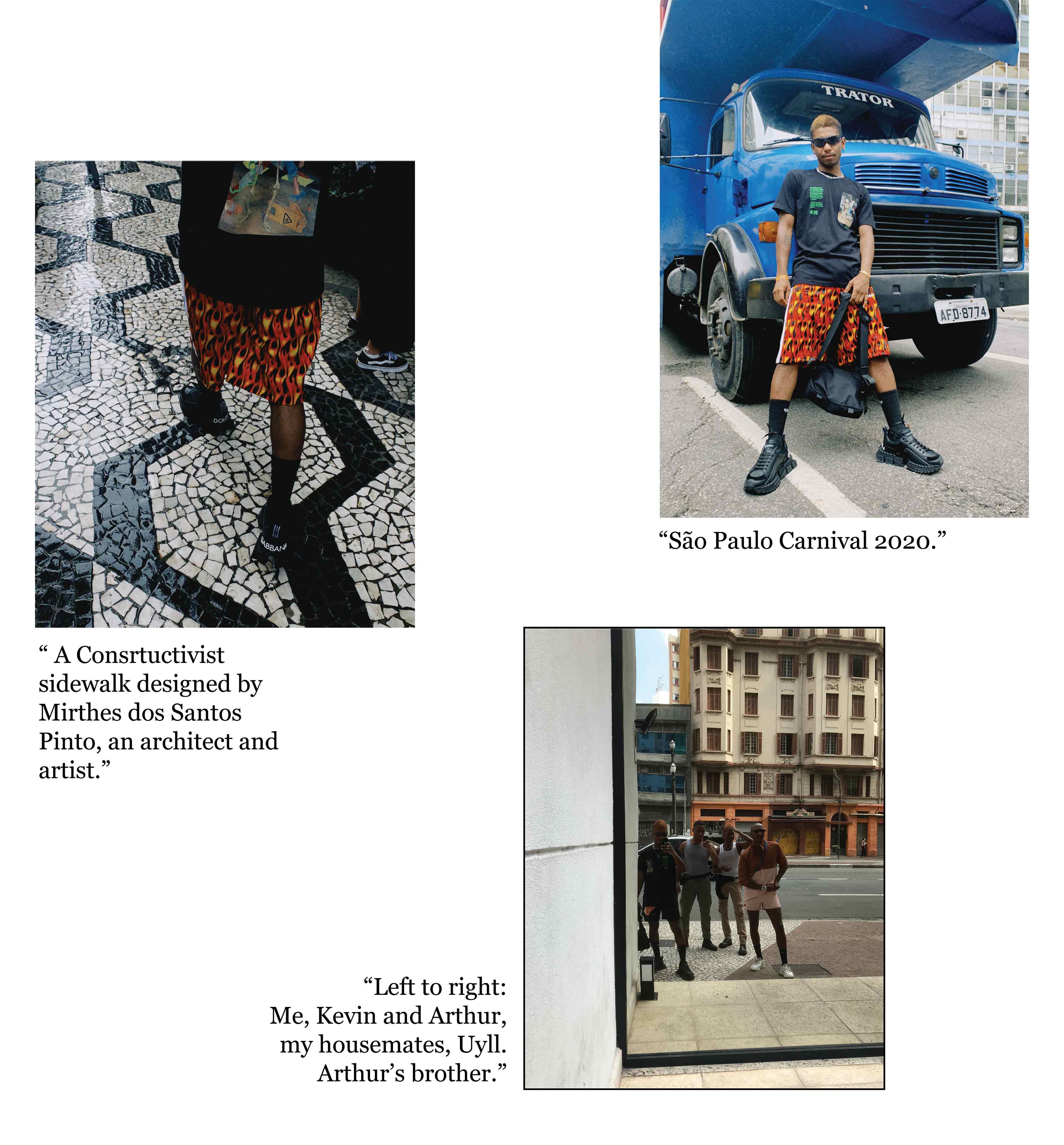
How do you like to spend your evenings?
Relaxing or finishing up some work. Sometimes I go out with friends for chilled events during the week. On the weekend I like to go out to listen to music and dance.
Best recommendation for dinner in São Paulo?
Dona Lucy’s restaurant.
Favourite thing to drink?
Aperol Spritz.
Favourite place to go out?
BATEKOO is the best party and my favorite place to go out in São Paulo.
Favourite Brazilian artist?
Linn Da Quebrada.
Last thing you do before you sleep?
Skincare.
What do you dream about?
The Apocalypse.
